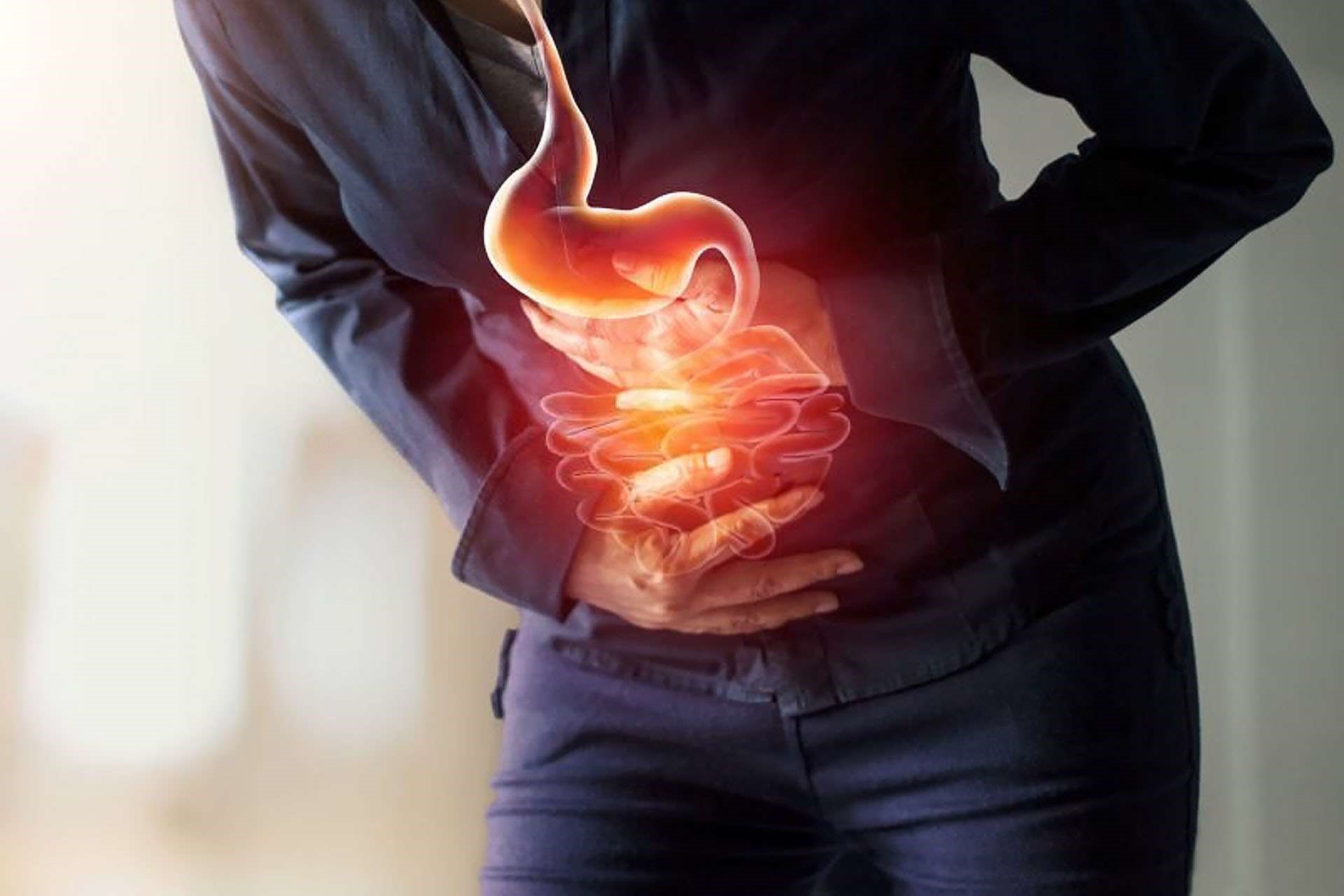
Gastric or duodenal ulcer: symptoms and what to eat
Peptic ulcer is an erosion of the mucous membrane that affects the upper digestive tract and affects about 4 million people every year
Peptic ulcer can occur in the stomach, and in this case we will speak of gastric ulcer, typical in people over 60, or in the duodenum (duodenal ulcer).
Peptic ulcers do not resolve spontaneously, and it is therefore necessary to consult a specialist for targeted medical treatment.
Pain when eating or resting: ulcer symptoms
Burning and indigestion are symptoms commonly present with ulcers, sometimes accompanied by pain in the upper abdomen for both duodenal and gastric ulcers.
They may also be present:
- anaemia
- nausea
- vomiting
- inappetence.
There is, however, a difference between the two types of ulcer: patients with a gastric ulcer will experience worsening pain after ingesting food, on the contrary, those with a duodenal ulcer will experience pain at rest (even at night, with the risk of sleep being compromised) and eating will relieve the symptoms instead.
In more severe cases, particularly when the disease is not treated promptly, symptoms are more severe and include
- sense of gastric fullness
- sudden weight loss
- internal bleeding that causes, as it persists, anaemia.
What are the causes of peptic ulcer?
The main cause of peptic ulcer is bacterial. In most cases, it is caused by infection with Helicobacter pylori.
The action of Helicobacter pylori causes inflammation in the stomach, which in certain cases can develop into an ulcer and, if combined with other factors, even into stomach cancer.
Smoking, alcohol and taking non-steroidal anti-inflammatory drugs (NSAIDs) are considered risk factors for the development of peptic ulcer.
Non-steroidal anti-inflammatory drugs can damage the intestinal mucosa, thus preventing the body from repairing the damage.
In addition, their intake may decrease the production of prostaglandin, a hormone that plays an essential role in the barrier formation process along the mucosa of the digestive tract.
Finally, Zollinger-Ellison syndrome, although less frequent, which is responsible for an overproduction of gastric acids, should also be mentioned among the causes of peptic ulcers.
Peptic ulcer: How is it treated?
If a peptic ulcer is suspected, the gastroenterologist will indicate the most suitable diagnostic tests of which the main one is endoscopy by means of esophagogastroduodenoscopy, which allows a direct evaluation of the stomach and duodenum by detecting any abnormalities.
During the examination, a biopsy may be performed, i.e. the taking of small samples of stomach or duodenum mucosa on which a histological test will be carried out to assess the presence of Helicobacter pylori under a microscope.
The endoscopic examination may be supplemented by other examinations, again aimed at detecting Helicobacter pylori, including examination of the faeces and the Breath test.
The treatment of peptic ulcer depends on its cause and, therefore, treatment options are manifold
For example, in the presence of Helicobacter pylori, treatment to resolve the disorder involves antibiotic therapy in combination with proton pump inhibitors.
If, on the other hand, the cause lies in the intake of NSAIDs, it will be appropriate to modify or suspend the therapy and prescribe drugs such as proton pump inhibitors in order to decrease the production of acid in the stomach.
Ulcer: what to eat?
People suffering from peptic ulcer should pay attention to their diet, which should be rich in vegetables, especially green leafy vegetables and carrots, fruit, including apples, and pulses.
Among meats, white meat is the most suitable and it is advisable to consume whole grains.
Milk, on the other hand, should be avoided, as it contributes to the production of acids and worsens the disorder: it can, however, possibly be replaced with mature cheese and yoghurt with added probiotics.
Salt, spices, fatty condiments, and coffee should also be avoided.
Risk factors for peptic ulcers include smoking and alcohol intake, which should therefore be avoided. Meals should also be spaced out from bedtime by chewing well.
Improving lifestyle is therefore important in the treatment and healing of ulcers and in avoiding their possible recurrence.
Read Also
Emergency Live Even More…Live: Download The New Free App Of Your Newspaper For IOS And Android
Crohn’s Disease: What It Is And How To Treat It
Psoriasis: What It Is And What To Do
Wales’ Bowel Surgery Death Rate ‘Higher Than Expected’
Irritable Bowel Syndrome (IBS): A Benign Condition To Keep Under Control
Colitis And Irritable Bowel Syndrome: What Is The Difference And How To Distinguish Between Them?
Irritable Bowel Syndrome: The Symptoms It Can Manifest Itself With
Crohn’s Disease Or Irritable Bowel Syndrome?
USA: FDA Approves Skyrizi To Treat Crohn’s Disease
Crohn’s Disease: What It Is, Triggers, Symptoms, Treatment And Diet
Gastrointestinal Bleeding: What It Is, How It Manifests Itself, How To Intervene
Faecal Calprotectin: Why This Test Is Performed And Which Values Are Normal
What Are Chronic Inflammatory Intestinal Diseases (IBD)?
Chronic Inflammatory Diseases: What They Are And What They Involve
Obstructed Defecation: How It Manifests Itself And How To Treat This Form Of Chronic Constipation
Ulcerative Colitis: Causes, Symptoms And Treatment


